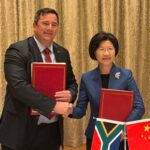Farmland and currency key in "unprecedented" Chinese reforms

With a game-changing Communist Party of China (CPC) meeting approaching next month, a report detailing the country's reform plans has garnered wide public attention, especially over its recommendations toward rural land ownership and the opening up of investment. 
The Development Research Center, a governmental think tank under the Chinese State Council, published a report on Oct. 1 focusing on eight key areas of reform.
The report is intended as a reference for the third Plenary Session of the CPC next month.
The report has surprised many by its "boldness" in measures and tone, Chinese media have reported. Out of the eight key areas, land reform is seen as among the most significant and expected to "tackle unsolved problems of the past".
According to the report, farmers will be granted the right to transfer and mortgage collectively owned rural land. The measures would mean equal treatment of farmland and state-owned land, improving the leasing, transferring and mortgaging systems in the market.
The so-called "land transfer" refers to the movement of land management rights to other farmers or economic organizations by farmers who own the properties.
Under current regulations, the right to use China's rural collective land cannot be transferred through the market, resulting in problems such as unequal market entry, price distortions, the inequitable distribution of value-added benefits, and a failure to achieve scale of production.
With collectively owned land rural going directly into the market for trading, land requisition from the government should gradually be reduced until the governmental allocation of private land is completely abolished.
In reality, a series of land reforms have already been underway in several Chinese cities. Weihai City, a major seaport in the eastern Shandong province, has introduced "Weihai City rural land transfer financial management and use of funds" in 2013 to support the scale of rural land rights transfers.
On Oct. 17, the state council also approved a comprehensive strategic plan that maps out the nation’s goal to promote "high-quality farmland" in the next decade. In the proposal, China aims to build 800 million acres of "high-quality farmland" with stronger resistance to floods and droughts by 2020, and it's expected that production capacity will increase by more than 100 kilograms (220 pounds) per acre.
The plan, proposed by the National Development and Reform Commission (NDRC), China's national policy-making and enforcement body, also emphasizes efforts to improve farm infrastructure and achieve further agriculture modernization as a result.
The report also expects the Chinese currency, yuan, to become a major international settlement and investment currency and in some markets, an international reserve currency. It says those measures will "force reforms in areas like the foreign exchange market, cross-border investments, bond markets, financial institutions, and foreign currency integrated management".
While website News.ifeng.com questioned whether there was "mere speculation in the depth of reforms", the new leadership has confirmed such speculations in several recent occasions.
In a meeting with the economics and management advisory board from the state’s top academic institute Tsinghua University on Oct. 23, President Xi Jinping said: "everyone is very concerned about China's reform process. We will be studying how to deepen the reform comprehensively during the third Plenary Session of the Communist Party and set the framework."
On another occasion, Politburo member and CPPCC National Committee Chairman Yu Zhengsheng, who spoke at the 9th cross-strait trade and cultural forum on Oct. 26, echoed President Xi's remarks on the focus of the upcoming meeting, claiming it to be "a determining event for reforms at unprecedented level".
China’s new leadership, led by President Xi Jinping and Premier Li Keqiang, has been pushing a series of economic reforms that focuses on loosening state control since it came to power at the end of 2012.
Many believe that Liu He, deputy director of the National Development and Reform Commission (NDRC), who co-authored the report, will be drafting the economic reform plans at the Plenary Session.











































